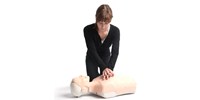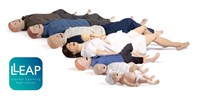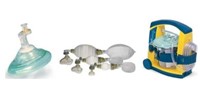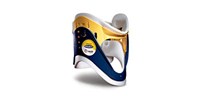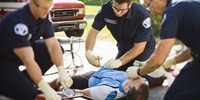Simulation in nursing
 Simulation training is first and foremost about enhancing the learning environment to promote effective quality learning experiences - and getting started is more about identifying learning needs and objectives than it is about obtaining state of the art equipment.
Simulation training is first and foremost about enhancing the learning environment to promote effective quality learning experiences - and getting started is more about identifying learning needs and objectives than it is about obtaining state of the art equipment.
Skills trainers and low-fidelity manikins can fulfill one’s basic training needs and provide an excellent introduction into the principals of simulation based training. However more advanced equipment that enables full-scale simulation may be appropriate as an evolving process in developing training programs.
“Simulation is a technique - not a technology - to replace or amplify real experiences with guided experiences that evoke or replicate substantial aspects of the real world in a fully interactive manner.”
Professor David M. Gaba,
Stanford University
|
SimMan will challenge and test students’ clinical and decision-making skills during realistic adult patient care scenarios. Audiovisual feedback allows for comprehensive de-briefing for reflective learning and team effectiveness. SimMan 3G provides realistic multidisciplinary training in a variety of settings - from the point of patient injury, through the challenges of ambulance transportation to definitive care in the hospital Intensive Care Unit- the chain of inter-disciplinary patient care can be streamlined for improved patient outcomes.
SimBaby presents a comprehensive range of signs and symptoms for students to observe, interpret and manage through complete clinical scenarios in emergency paediatric patient care.
SimNewB provides an interactive simulation solution for the unique training requirements of neonatal emergency medicine and resuscitation courses.
|
 |
 |
From a team of experts to an expert team
Poor communication is often cited as a contributory factor where patients suffer poor outcomes. Simulation addresses this training requirement in a way that no other training methodology can. Rare but critical and time pressured events requiring the expertise of a multidisciplinary team can be re-created in a simulation, so that protocols can be established and communication problems identified and resolved for improved patient outcomes.
We believe
At Laerdal, we believe that simulation training for Healthcare Professionals is pivotal in our common goal to improve patient outcomes. Simulation provides the opportunity to train staff without risk to patients. The ability to practice frequently and manage complex medical scenarios helps prevent medical errors, and the subsequent detailed feedback promotes discussion and reinforces the learning process. Simulation will enable your staff to deliver better quality patient care with more integrity, improved consistency, and enhanced confidence.

